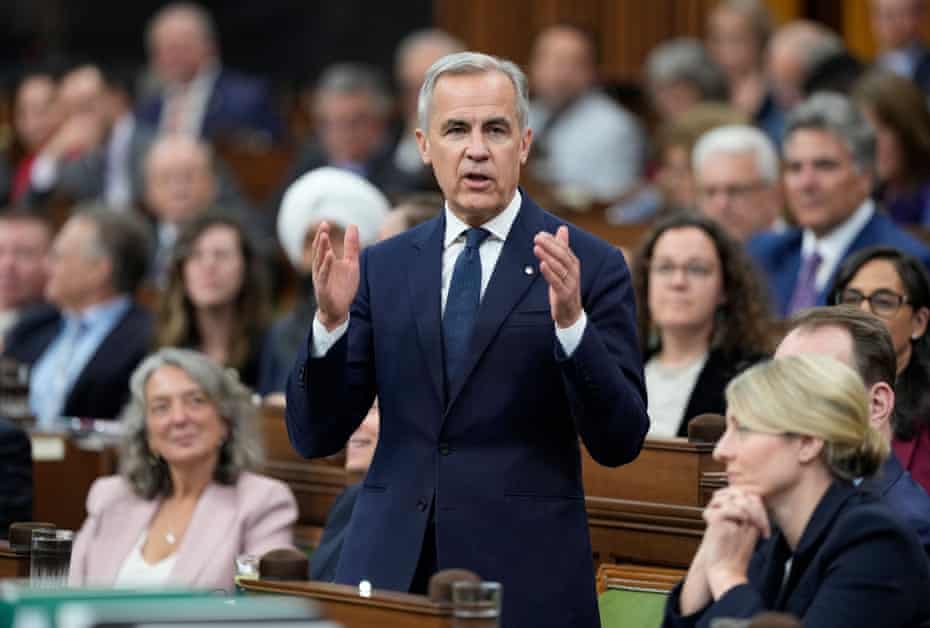Prime Minister Mark Carney is defending his decision to invite Indian Prime Minister Narendra Modi to the upcoming G7 summit in Alberta, despite a deepening diplomatic rift over the murder of a prominent Sikh activist on Canadian soil.
Carney’s invitation comes just weeks after the Royal Canadian Mounted Police concluded that the June 2023 assassination of Hardeep Singh Nijjar in Surrey, British Columbia, was orchestrated at the “highest levels” of the Indian government. Four Indian nationals residing in Canada have since been arrested and charged with the killing, which shattered bilateral relations and triggered reciprocal diplomatic expulsions last year.
When pressed by reporters on Friday about whether he believes Modi played a role in the plot, Carney remained tight-lipped, citing ongoing legal proceedings.
“There is a legal process that is underway and quite advanced in Canada, and it’s never appropriate to make comments concerning those legal processes,” Carney said at a press briefing.
The G7 summit, which will bring together leaders from the world’s leading industrialised nations, is set to run from June 15 to 17 in Kananaskis, Alberta. India is not a G7 member but has been invited as a guest nation to discuss global issues, including energy, artificial intelligence, and critical mineral supply chains.
Carney defended the invitation by pointing to India’s global significance.
“India is the fifth largest economy in the world, the most populous country in the world and central to supply chains,” he said. “It is in Canada’s interest and the world’s interest that India be at the table.”
In a statement following the announcement, Modi said he was “glad” to receive a call from Carney and congratulated him on his recent electoral victory. “As vibrant democracies bound by deep people-to-people ties, India and Canada will work together with renewed vigour, guided by mutual respect and shared interests. Look forward to our meeting at the summit,” Modi said.
However, the move has been met with outrage from Sikh advocacy groups in Canada. The World Sikh Organisation condemned the decision, calling it a betrayal of Canadian values.
“For Sikhs in Canada, this is a betrayal, not just of our community, but of core Canadian values,” said Danish Singh, president of the WSO. “Prime Minister Carney’s decision to invite Narendra Modi, while India continues to deny any role in the assassination of Bhai Hardeep Singh Nijjar and refuses to cooperate with Canadian authorities, is both shameful and dangerous.”
Singh added, “We would never welcome leaders from Russia, China, or Iran under such circumstances. Yet India has done far more on Canadian soil in terms of foreign interference and transnational repression, including orchestrating murders, and is being rewarded with a red carpet welcome.”
After Carney administration attempts to stabilise relations with several countries
The decision comes as Carney’s newly elected government attempts to stabilise relations with several countries amid mounting international tensions. Late Thursday, the prime minister released a summary of a phone call with Chinese Premier Li Qiang, during which both leaders expressed a desire to “regularise channels of communication.” The call marks the first high-level contact since Carney took office in March, and follows a prolonged trade dispute that has seen tariffs on seafood, electric vehicles, pork, peas, and canola.
In addition, Carney is reportedly engaged in direct talks with U.S. President Donald Trump to resolve a renewed trade conflict between the North American allies. The dispute, centred around tariffs on Canadian steel and aluminium, has dealt a fresh blow to key sectors of the Canadian economy.
Ontario Premier Doug Ford confirmed Friday that Carney is in “deep, deep discussions” with Trump’s team, a development later corroborated by the federal industry minister.
As diplomatic manoeuvring intensifies ahead of the G7 summit, Carney faces increasing scrutiny from domestic and international observers, with critics questioning whether Canada’s pursuit of geopolitical pragmatism is coming at the cost of justice and accountability.



